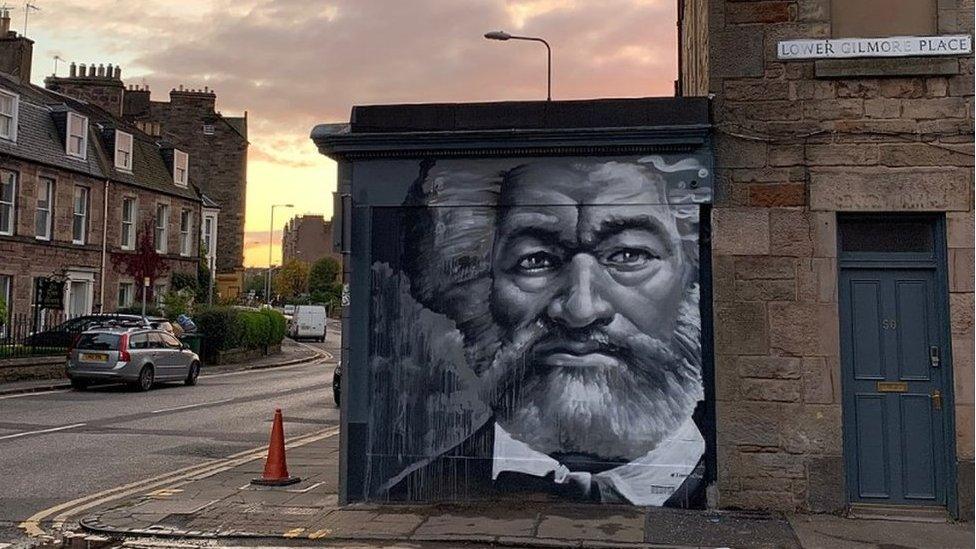Juneteenth: After decades, Opal Lee finally gets her day off
- Published
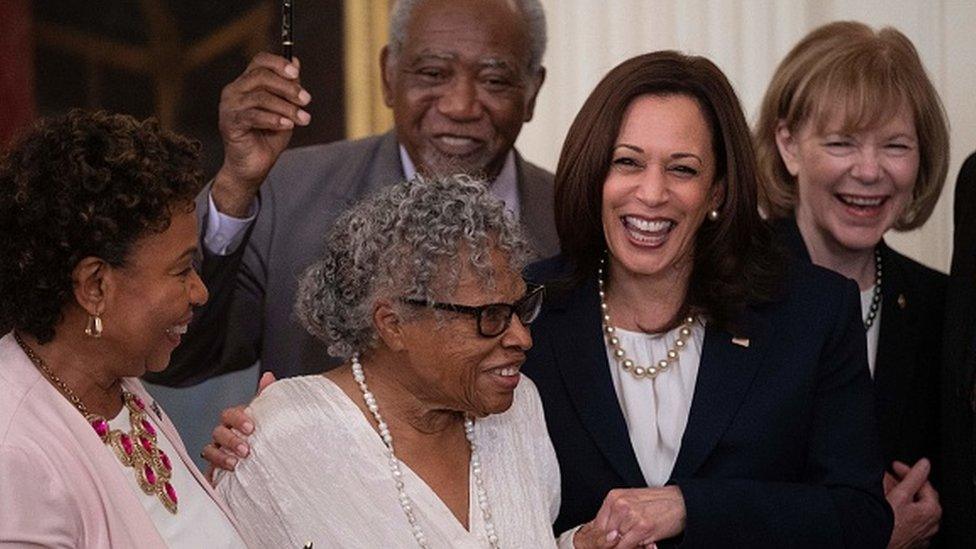
Opal Lee, 94, was at the centre of a campaign to recognise Juneteenth as a national holiday in the US
Opal Lee was 12 when a mob of white supremacists vandalised and set fire to her family's home in Fort Worth, Texas.
Helpless, she watched her home burn to the ground as police stood by, doing nothing to stop the violence.
The attack happened in 1939 on 19 June, a symbolic date that commemorates the end of slavery in the US.
Known as Juneteenth, the date would leave a lasting impression on Ms Lee, who channelled her experiences of racism into a life of teaching, activism and campaigning.
"The fact that [the attack] happened on the 19th day of June has spurred me to make people understand that Juneteenth is not just a festival," she told Fort Worth Star-Telegram newspaper in February, external.
"It should be a unifier. The slaves didn't free themselves."
For decades, Ms Lee worked tirelessly to get Juneteenth recognised as a national holiday in the US.
Now aged 94, Ms Lee has finally got her day off.
'We waited so long'
On Thursday US President Joe Biden signed a bill into law to make 19 June a national holiday commemorating the emancipation of enslaved black Americans.
Juneteenth marks the day on 19 June 1865 when enslaved black people in Texas learned they had been freed. They were among the last to be told the news, two months after the end of the Civil War.
The liberation came more than two-and-half years after President Abraham Lincoln issued the Emancipation Proclamation during the war, declaring all enslaved people in the rebellious southern states to be free.

Read more about Juneteenth:
'A celebration of life. A celebration of freedom': What you need to know about Juneteenth

A national holiday to recognise this day was long overdue, said Ms Lee, who was present when President Biden signed the bill.
Hailing her as an "incredible woman", Mr Biden gave Ms Lee the first pen he used to sign the bill into law. Mr Biden then asked the audience to give Ms Lee a standing ovation.
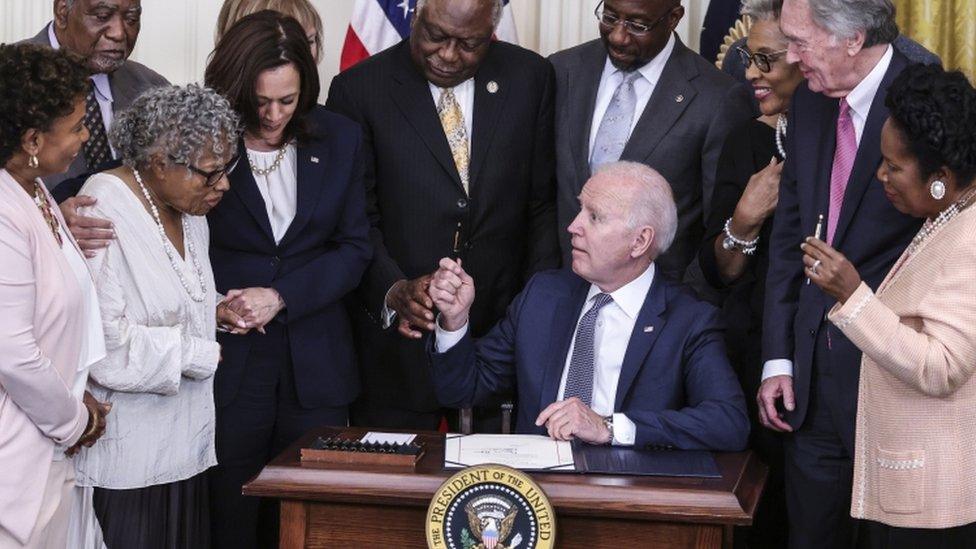
President Biden gave Ms Lee (third from left) the first pen he used to sign the bill
"We waited so long to be first-class citizens and this is one of the ways to acknowledge that our ancestors weren't free for two-and-a-half years after the Emancipation Proclamation," Ms Lee said.
"We still got much work to do and we see this as a great beginning to do something about the disparities in our country."
The grandmother of Juneteenth
Affectionately known as the grandmother of Juneteenth, Ms Lee was born on 7 October 1926 in Marshall, Texas.
The attack on her family home in 1939 came two years after they had moved to a predominantly white neighbourhood in Fort Worth.
"The people didn't want us. They started gathering. The paper said the police couldn't control the mob," Ms Lee told a local TV station.
In an interview with broadcaster CNN, external, Ms Lee said her parents buckled down, worked hard, bought a new home and never spoke of the incident again.
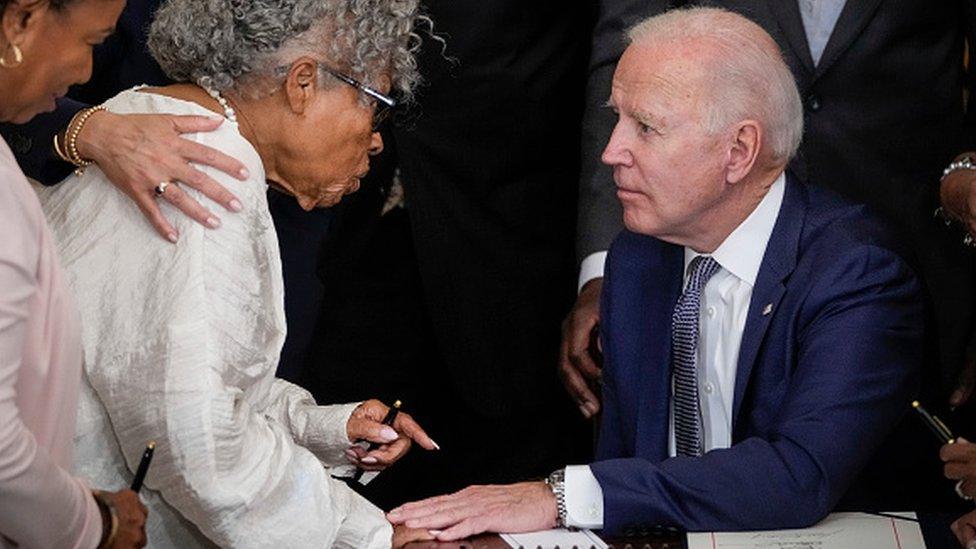
Ms Lee received a standing ovation at the signing of the bill
In adult life, Ms Lee forged a career as a teacher in Fort Worth, where she worked in a primary school for 15 years. She later obtained a master's degree in counselling and served as a school counsellor until her retirement in 1977.
Her retirement gave her the opportunity to plunge into activism.
She has been a prominent community organiser for several causes, including access to housing and preserving the history of black Americans in Fort Worth.
This commitment to recalling memories of her ancestors foreshadowed her Juneteenth campaign.
Change is afoot
As a teacher, Ms Lee helped organise festivals to mark Juneteenth which, she told the New York Times newspaper, external, was "like going to Christmas or Thanksgiving".
But it wasn't until later in life that the date took on renewed resonance. At 89, she decided something needed to be done.
In 2016, Ms Lee attempted to walk 1,400 miles (2,253km) from her home in Fort Worth to Washington DC in an effort to get Juneteenth named a national holiday.
She travelled 2.5 miles each day to symbolise the two-and-a-half years that black Texans waited for freedom after the Emancipation Proclamation.
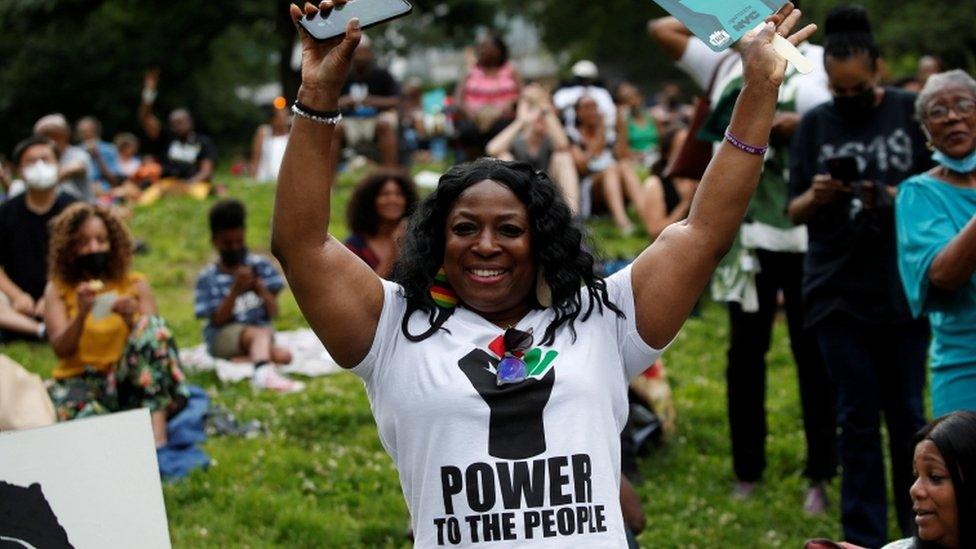
Americans have been celebrating Juneteenth across the US this weekend
With each footstep, Ms Lee walked closer to her goal.
This year, she'll tread the same path knowing the hard yards have been done.
"Walking tomorrow is going to be a joy," she told ABC News's Good Morning America programme, external. "We need to go about the business of everybody participating."
Related topics
- Published9 June 2020
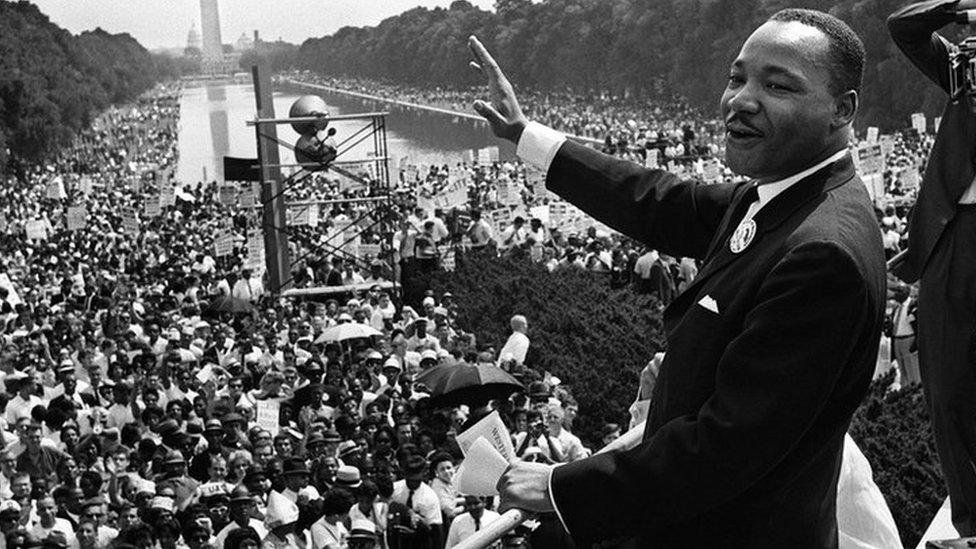
- Published26 January 2021
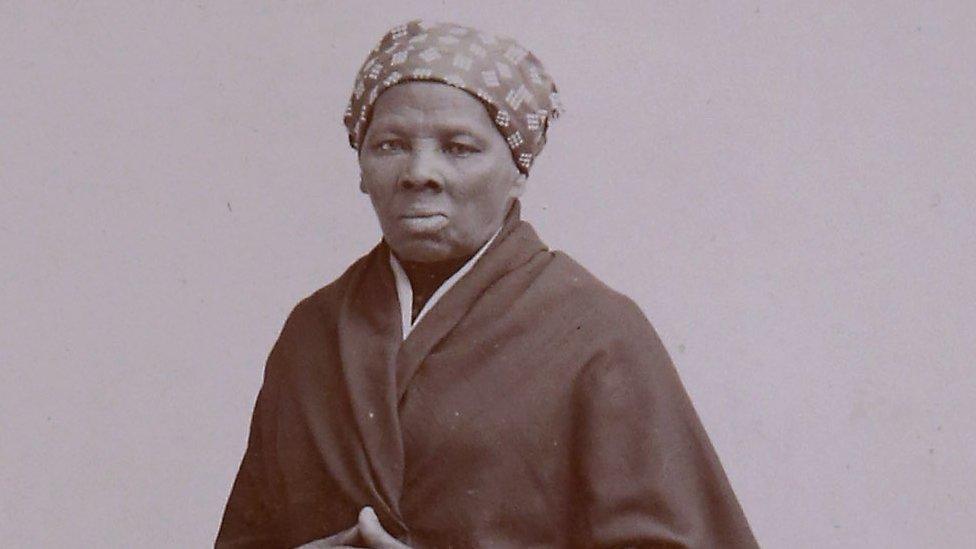
- Published11 June 2021
